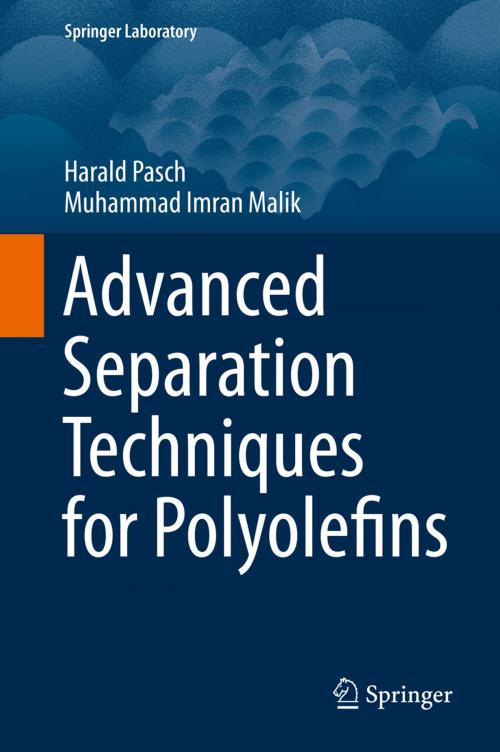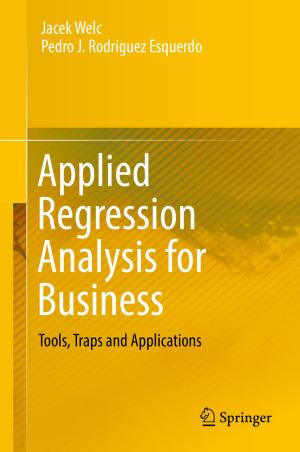Advanced Separation Techniques for Polyolefins
Nonfiction, Science & Nature, Science, Chemistry, Analytic, Technology, Textiles & Polymers| Author: | Harald Pasch, Muhammad Imran Malik | ISBN: | 9783319086323 |
| Publisher: | Springer International Publishing | Publication: | August 27, 2014 |
| Imprint: | Springer | Language: | English |
| Author: | Harald Pasch, Muhammad Imran Malik |
| ISBN: | 9783319086323 |
| Publisher: | Springer International Publishing |
| Publication: | August 27, 2014 |
| Imprint: | Springer |
| Language: | English |
This Springer Laboratory volume introduces the reader to advanced techniques for the separation and fractionation of polyolefins. It includes detailed information on experimental protocols and procedures, addressing the experimental background of different polyolefin fractionation techniques in great detail. The book summarizes important applications in all major fractionation methods with emphasis on multidimensional analytical approaches. It comprises the most powerful modern techniques, such as high temperature size exclusion chromatography (HT-SEC) for molar mass analysis, temperature rising elution fractionation (TREF) and crystallization analysis fractionation (CRYSTAF) for the analysis of chemical composition and branching, high temperature two-dimensional liquid chromatography (HT-2D-LC), solvent and temperature gradient interaction chromatography (SGIC and TGIC) and crystallization elution fractionation (CEF). Beginners as well as experienced chromatographers will benefit from this concise introduction to a great variety in instrumentation, separation procedures and applications. With detailed descriptions of experimental approaches for the analysis of complex polyolefins, the readers are offered a toolbox to solve simple as well as sophisticated separation tasks. The book starts with an introduction into the molecular complexity of polyolefins - the most widely used synthetic polymers with rapidly growing production capacities. It systematically discusses crystallization based fractionation techniques including TREF, CRYSTAF and CEF and column chromatographic techniques for molar mass, chemical composition and microstructure, as well as the combination of different fractionations in multidimensional experimental setups. This book also includes basic information on the application of high-temperature field-flow fractionation.
This Springer Laboratory volume introduces the reader to advanced techniques for the separation and fractionation of polyolefins. It includes detailed information on experimental protocols and procedures, addressing the experimental background of different polyolefin fractionation techniques in great detail. The book summarizes important applications in all major fractionation methods with emphasis on multidimensional analytical approaches. It comprises the most powerful modern techniques, such as high temperature size exclusion chromatography (HT-SEC) for molar mass analysis, temperature rising elution fractionation (TREF) and crystallization analysis fractionation (CRYSTAF) for the analysis of chemical composition and branching, high temperature two-dimensional liquid chromatography (HT-2D-LC), solvent and temperature gradient interaction chromatography (SGIC and TGIC) and crystallization elution fractionation (CEF). Beginners as well as experienced chromatographers will benefit from this concise introduction to a great variety in instrumentation, separation procedures and applications. With detailed descriptions of experimental approaches for the analysis of complex polyolefins, the readers are offered a toolbox to solve simple as well as sophisticated separation tasks. The book starts with an introduction into the molecular complexity of polyolefins - the most widely used synthetic polymers with rapidly growing production capacities. It systematically discusses crystallization based fractionation techniques including TREF, CRYSTAF and CEF and column chromatographic techniques for molar mass, chemical composition and microstructure, as well as the combination of different fractionations in multidimensional experimental setups. This book also includes basic information on the application of high-temperature field-flow fractionation.















